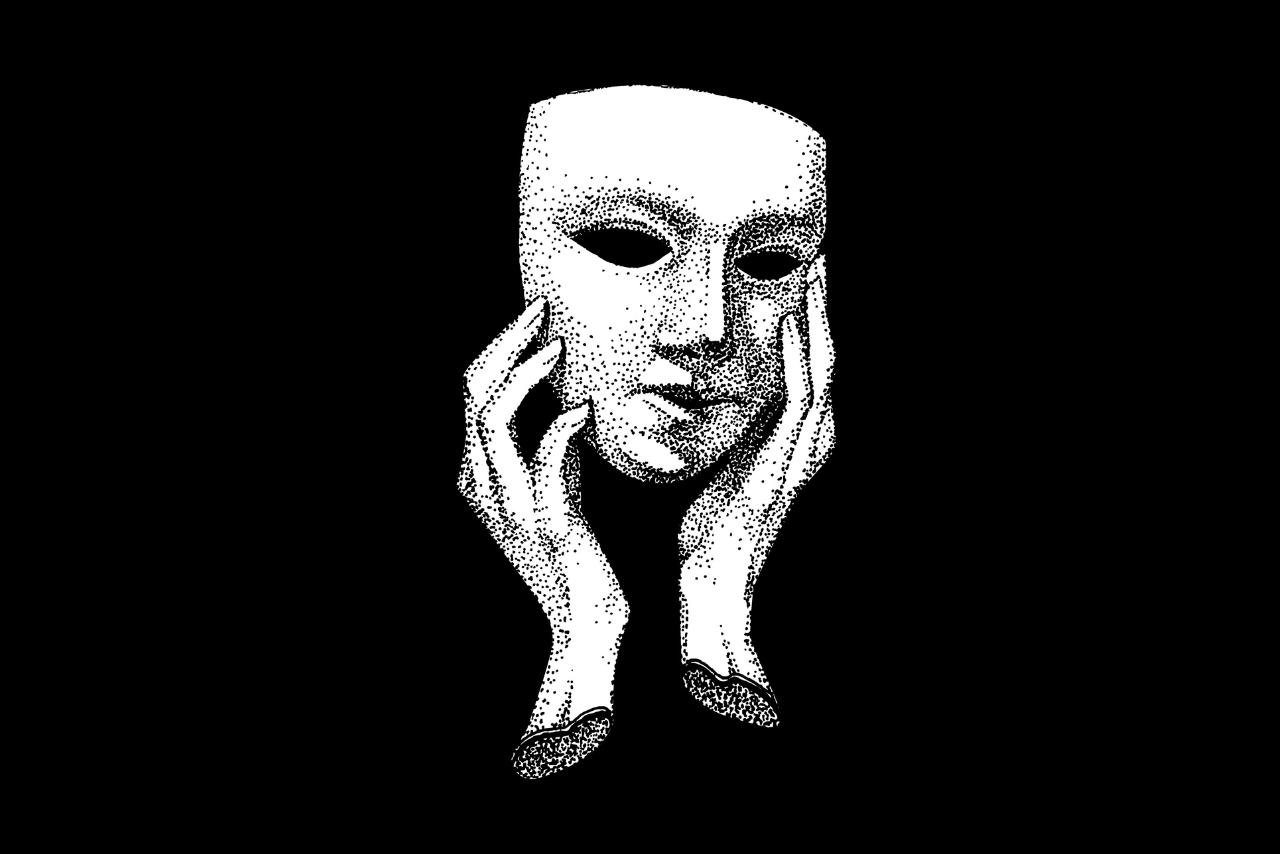Liberate Yourself: 5 Reasons to Share Your Truth
Tiny BuddhaRead More

“When we deny our stories, they define us. When we own our stories, we get to write the ending.” ~ Brené Brown
Do you ever feel like a character in someone else’s play? More so, a victim in your own story?
I spent many years of my life this way. I was so consumed with what others thought about me, I didn’t even know how to be myself. I would put on a show I thought everyone else wanted to see. I’ve learned we don’t have to perform in life; we just need to be ourselves. Speaking with openness and honesty from the heart is our most valuable tool for living an authentic life.
Growing up, I was a ‘sensitive’ kid. I was ridiculed often for simply having feelings. I learned pretty quickly to shut down, numb, and medicate.
I began to have struggles with anxiety and depression. I didn’t really know this was what it was until it progressed into something much more unmanageable. I tried to talk about my feelings and was often questioned and shunned for them. Eventually, these feelings manifested into a pretty significant eating disorder.
No one recognized my eating disorder because being thin was ‘in.’ However, to put it into perspective, I was tracking 500 calories a day, working out one to two hours a day, and purging anything I put in my body.
I was confronted about this by two friends in college. I remember feeling relieved but also ‘found out.’ From my perspective at the time, I thought I was functioning well in life. I was going to school and working full-time while maintaining friendships and a new relationship.
Even during this intervention, I found myself justifying the behaviors. Keep in mind, they were only confronting me about the eating disorder, not the daily binge drinking I was also engaging in.
Fast-forward five years. I found myself married and divorced in under a year. Prior to the divorce, I was hiding my drinking of one bottle of wine a night. I was functioning in one area of my life but falling apart in all the others.
Surprisingly, my addictive patterns never impacted my career. I was living a dual life, providing therapy to others while hardly treading water personally.
In 2010, I found myself with my first DUI. I never did anything real to rehabilitate from this. And I concealed it to the best of my ability, hoping it would just go away. However, experiences tend to repeat themselves until we learn what we are supposed to learn. I got a second DUI in 2013. After that, I did a bit of rehabilitating but still didn’t stop the drinking. I was just no longer driving after the drinking.
I paid $10,000 in legal fees simply trying to plead my case of being not guilty when clearly, I was guilty. This was such a moral conflict for me.
I applied for my therapy license in 2016 and was denied approval. While I was being honest with the board about my recent DUI, they learned I was dishonest with my current employer about my initial one. My integrity was completely destroyed. I was looked at as a liar. I was living a double life, and I was exhausted.
When the board exposed the truth, I felt shame and liberation at the same time. They showed me that my insides were not matching my outsides.
I made a commitment to myself then to never hide the truth again. That day, I got sober from alcohol and have been sober for eight years now.
Recovery taught me to be honest and to focus on doing the next right thing. So I became brutally honest in all areas of my life. More so, I learned if people are uncomfortable about my story, it’s not my problem. I started to see everyone had problems. I also saw a blessing in being open and honest because it created space for others to do the same.
I’ve been told often that I am “courageous and brave,” but I was simply tired of being ingenuine. I was healing out loud because I nearly died in silence.
When I decided to be honest, my life became better. I didn’t have to remember my story anymore. All the shame dissipated, and I was able to start making better life choices. People around me respected me more for owning my story. If you tell the truth, no one can hold it against you. The power was lost. The best part of it all was that I began attracting beautiful, like-minded people.
Many people struggle with authenticity and truth-telling because they are holding onto the fear of judgment. However, sharing your truth also unlocks the potential for self-growth, discovery, and connection. This could lead to profound personal transformation and the development of more meaningful relationships with others.
This is a game changer. It allows you to say what you want, ask for what you need, express your emotions, and celebrate your achievements. Every time you do, you expand that sense of confidence, growth, and joy. Soon, you’ll see vulnerability as a strength, not a weakness.
You have the power to change your life, one step at a time. Here’s what will come from you being brutally honest:
Self-acceptance/Authenticity
You will learn to no longer run from the painful parts of your story. Your story may be the hope someone else needs. You don’t have to live a double life where you keep changing hats depending on who you are around. You can simply be you.
Empowerment
You’ll be able to use your experience to gain autonomy and self-determination. You will be able to give others the tools and resources to do the same.
Resilience/Growth
You will continue to strengthen your internal muscle to adapt and recover from challenging life experiences. You can’t gain resilience without walking through hardships.
Connection
Your relationships will shift from surface level to a deeper emotional connection. You will take the lead by sharing feelings and being vulnerable, and you will gain a stronger sense of understanding with others.
Inspiring Others
You will lead by example. You will be able to impact and create a positive environment. This can be contagious and encouraging to others. You may become a catalyst for positive change.
Life is a collection of stories, a unique narrative that each of us creates with our experiences, challenges, and choices. Your story is a reflection of your journey. This implies your wins, losses, and everything in-between.
Owning your story can be daunting because it does require that vulnerability. You will have to look back at your past, which may be uncomfortable or painful. You will have to look at your mistakes, choices, and imperfections. This goes against a culture that often emphasizes perfection and success. Moreover, sharing your story means the possibility of judgment or rejection from others.
However, embracing your own past allows you to shape your own narrative. You are able to turn adversity into strength. You can recognize your self-worth by forgiving yourself and being more forgiving of others. You learn to love yourself and appreciate your mistakes for what they taught.
Offer the most precious gift of all—your authentic self—rather than trying to be all things to all people.
“Owning our story and loving ourselves throughout that process is the bravest thing that we will ever do.” ~ Brené Brown
![]()
About Lauren Impraim
Lauren is a therapist specializing in co-occurring disorders. She helps people process their shame and their pain, aids in stopping self-defeating patterns, and helps others build resilience and hope. You can find her on Psychology Today here.
Get in the conversation! Click here to leave a comment on the site.




